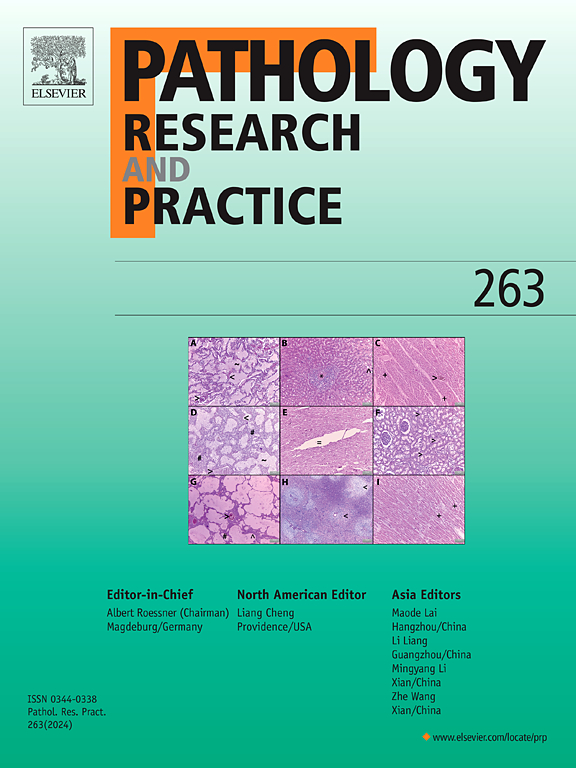Mechanistic role of stromal cancer-associated fibroblasts in tumorigenesis and brain metastasis: Highlighting drug resistance and targeted therapy
IF 2.9
4区 医学
Q2 PATHOLOGY
引用次数: 0
Abstract
Brain metastases remain a major clinical challenge due to their high resistance to conventional and targeted therapies. Cancer-associated fibroblasts are the most common cellular component of the brain metastases tumor microenvironment. They significantly impact the tumor microenvironment because they promote cancer cell invasion, enhance metastasis, boost immune evasion, and contribute to drug resistance. We searched the PubMed and Google Scholar databases and included 99 studies to summarize the present review. Based on the searched articles, the present review emphasizes that biomarkers including PDGFR-β, α-SMA, and collagen I can identify metastatic brain cancer-associated fibroblasts, which lead to a poor prognosis and recurrence. In addition, cancer-associated fibroblasts can cause resistance to therapy by modifying the extracellular matrix (e.g., collagen I, fibronectin), secreting growth factors (e.g., TGF-β, HGF, IL-6), causing immunological evasion (e.g., Tregs, MDSCs), secreting exosomes (e.g., miRNAs), metabolic reprogramming, stemness induction, and plasticity. We also describe the molecular mechanisms by which cancer-associated fibroblasts confer drug resistance in brain metastases, such as extracellular matrix restoration, immunological evasion, metabolic reprogramming, etc. We also cover prospective therapeutic options for overcoming medication resistance, such as cancer-associated fibroblasts depletion, paracrine signaling blockage, metabolic inhibitors, and cancer-associated fibroblasts-targeted immunotherapies. Targeting cancer-associated fibroblasts in addition to existing medications may improve cancer treatment efficacy and survival rates for individuals with brain metastases. However, more research is required to better understand their role in metastatic brain tumors.
求助全文
约1分钟内获得全文
求助全文
来源期刊
CiteScore
5.00
自引率
3.60%
发文量
405
审稿时长
24 days
期刊介绍:
Pathology, Research and Practice provides accessible coverage of the most recent developments across the entire field of pathology: Reviews focus on recent progress in pathology, while Comments look at interesting current problems and at hypotheses for future developments in pathology. Original Papers present novel findings on all aspects of general, anatomic and molecular pathology. Rapid Communications inform readers on preliminary findings that may be relevant for further studies and need to be communicated quickly. Teaching Cases look at new aspects or special diagnostic problems of diseases and at case reports relevant for the pathologist''s practice.

 求助内容:
求助内容: 应助结果提醒方式:
应助结果提醒方式:


